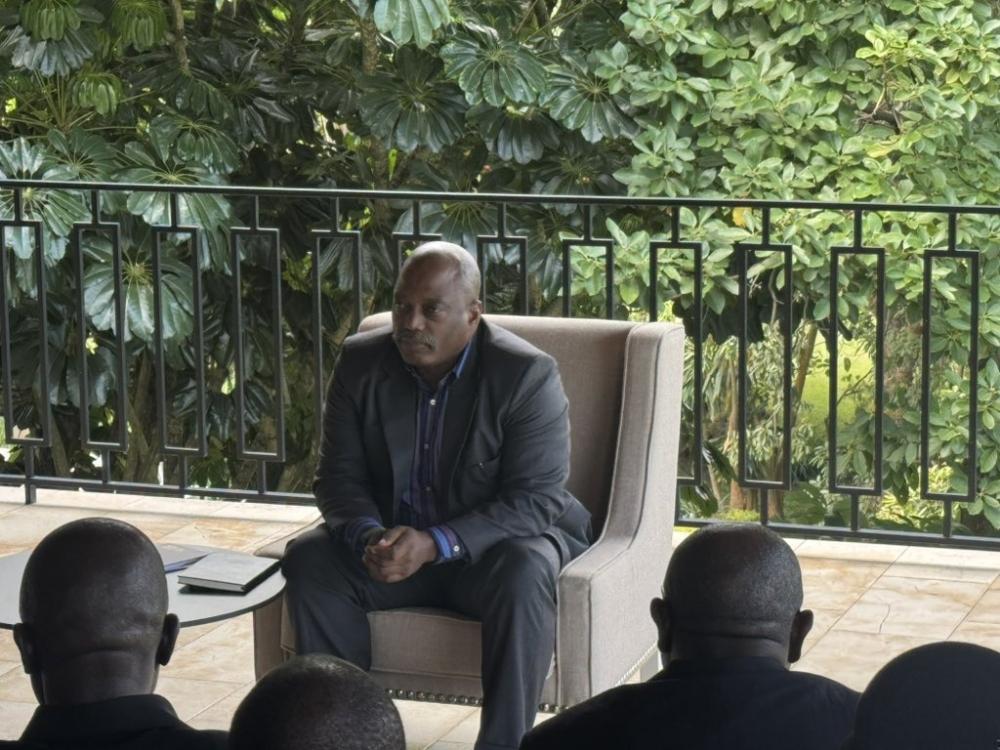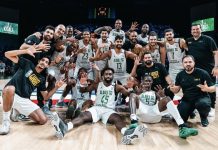Amani Athar
Africa-Press – Rwanda. Our elders often spoke in proverbs, sharing wisdom that continues to guide us today. One such African proverb says: “The battle of grasshoppers is a feast for the hawks.”
Looking at what is unfolding in the Democratic Republic of Congo (DRC), one could say the grasshoppers are locked in battle—and the hawks are feasting. But who will rescue the nation from this self-destruction? Who can be trusted in a country where betrayal has become the norm?
This commentary explores how successive Congolese leaders have betrayed their nation—and why only unity with purpose offers a path to peace and stability.
On Sunday, May 25, 2025, former President Joseph Kabila returned to Goma. His mission, reportedly, is to help salvage a country plagued by leadership failures in Kinshasa. But can Kabila bring peace without repeating the pattern of betrayal that has long defined Congolese politics—including his own?
One of the most painful betrayals in African history was the assassination of Patrice Emery Lumumba, the DR Congo’s first Prime Minister. He was betrayed by those he trusted—Joseph Kasavubu, Moise Tshombe, Etienne Tshisekedi, and Mobutu Sese Seko.
Kasavubu, once a cultural leader through ABAKO, became President and colluded with colonial powers and Mobutu to eliminate Lumumba. He handed Lumumba over to Tshombe’s secessionist regime in Katanga, sealing his fate.
Ironically, after the Katanga crisis ended, Kasavubu appointed Tshombe Prime Minister—only to dismiss him in 1965, charging him with treason and forcing him into exile, where he died under murky circumstances.
Later that year, Mobutu staged a coup against Kasavubu, pushing him into obscurity until his death in 1969—the same year Tshombe died. Many of their supporters believe Mobutu was behind both deaths.
Mobutu, who renamed himself Mobutu Sese Seko Kuku Ngbendu Wa Za Banga, became the autocratic “King of Zaire” and presided over decades of plunder and repression. His downfall came in 1997, when Laurent-Désiré Kabila—backed by Rwanda and the AFDL—ousted him.
Rwanda’s support hinged largely on its interest in dismantling the FDLR, the genocidal force operating in eastern DR Congo. However, once in power, Kabila quickly turned on his allies. He aligned with the FDLR and other regional players like Zimbabwe and Angola—betraying Rwanda and regional peace efforts.
After Kabila’s assassination in 2001, his son Joseph Kabila took over. Though he understood Rwanda’s concerns, he too maintained ties with the FDLR.
Rwanda again cooperated with Joseph Kabila during crises involving General Laurent Nkunda and later Bosco Ntaganda, who surrendered in Kigali and was handed to the ICC in The Hague.
Now, Joseph Kabila is back in Goma, consulting local leaders, traditional chiefs, clergy, and academia. His engagements suggest purpose—but is his purpose shared by his allies?
What does alignment look like between Kabila, Corneille Nangaa of the Congo River Alliance (AFC), Bertrand Bisimwa of the M23, and the group’s military leader Sultani Makenga? Can they rise above the cycle of betrayal?
Congolese people are exhausted by manipulations, tribalism, and power games. Whoever delivers peace—be it Kabila, Tshisekedi, Bisimwa, Nangaa, or Makenga—will earn a place in history.
A crisis of Leadership—and a glimmer of hope
President Félix Tshisekedi’s UDPS has proven weak and divisive, with an ethnicized approach to politics. It has failed to inspire national unity or defeat insurgencies in the east.
The only visible momentum appears to be coming from the M23/AFC coalition and Kabila’s return. As one observer recently put it, “If the trigger of Africa is in the DR Congo, then the trigger of the DRC is in Goma.”
Will the leaders now in Goma rise to the occasion? Can they forge a unifying purpose—an unwavering pledge to never betray the nation again?
This purpose must incorporate the Qatar-led peace talks, the Washington Declaration of Principles between Rwanda and the DRC, and the Social Pact for Peace proposed by the country’s Catholic and Protestant churches.
Nothing is impossible in the pursuit of peace. Only unity—with a shared, unwavering purpose—can end the cycle of betrayal and violence that has haunted the DR Congo and the broader Great Lakes region for too long.
Source: The New Times
For More News And Analysis About Rwanda Follow Africa-Press






